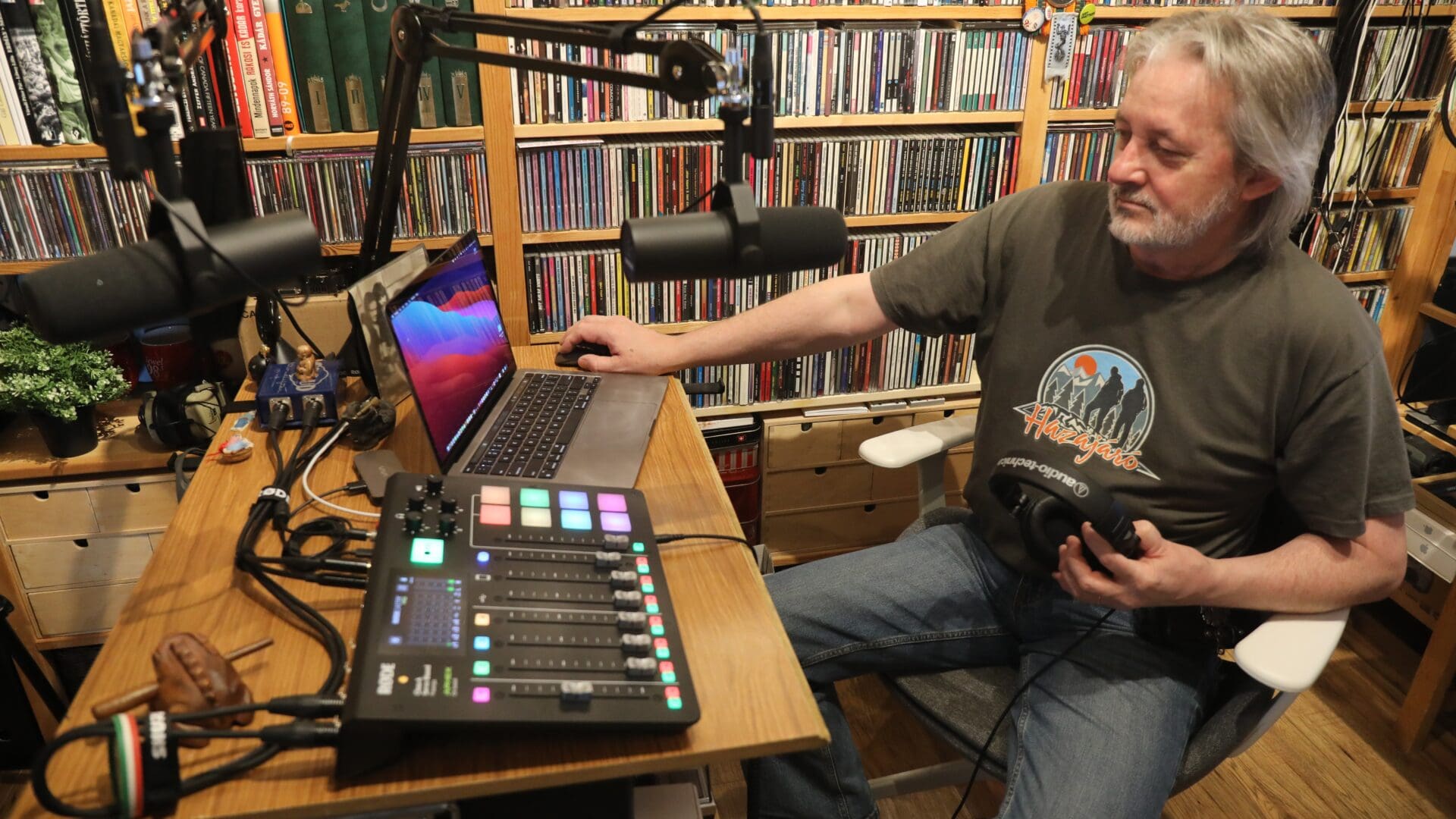Zsolt Bede-Fazekas is passionate about the preservation and transmission of Hungarian culture in the diaspora. He is editor-in-chief of the Toronto Independent Hungarian Radio, co-founder of the Paraméter Club, which has hosted countless homeland performers from Tamás Cseh, the Bojtorján Ensemble and Péter Huzella to Miklós Jancsó; owner of the last Hungarian bookstore in the Western Diaspora called Pannonia; he is also the former cultural director of the Hungarian House of Toronto and recipient of the Friends of Hungary Award. At the congress of the Hungarian Association of Cleveland, a documentary movie by Anna Szakály was introduced showcasing his life and achievements. After the screening, we continued the discussion on the cultural situation of the diaspora.
***
Why did you relaunch the Paraméter Club only recently, long after the end of the Covid pandemic?
It is operated in a special building where disabled people are cared for, and the club has an office upstairs where the caregivers stay, who still wear masks. We also share the restrooms. However, if I had seen more activity in the Hungarian community, we might have started a little earlier. I would be lying if I said that the late start was not due to the fact that the cultural situation of our community has deteriorated a lot.
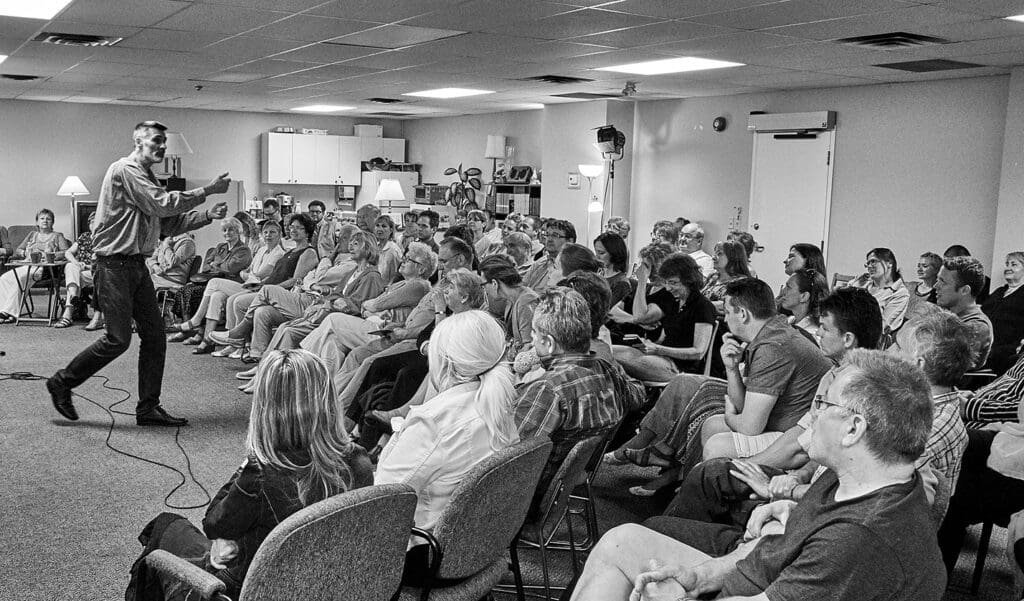
Why do you think that is the case?
There’s a lot of unpretentiousness and indifference. I have always worked with various Hungarian institutions, and I have recently heard a lot of complaints about the managers who do not dare to do anything, or if they do, they do not provide any guarantees, because it is completely uncertain whether five or a hundred people would show up. You are enthusiastic about bringing a good artist here – from Hungary, with whom you agree that it would not cost too much – and you approach an institution with this idea; but the first thing the manager says is that they cannot organize it, because no one might come. Very disappointing answer that breaks your enthusiasm. In such situations, I get to the point where I do not want to continue. Then I hear or see something good and get enthusiastic again, but then might hit the wall again… This is because there are people in positions who do not know much about culture, yet they can decide who/what to perform, and sometimes the result is not even entertaining. At the same time, I believe that we have to push culture down people’s throats even if there is momentarily little demand for it.
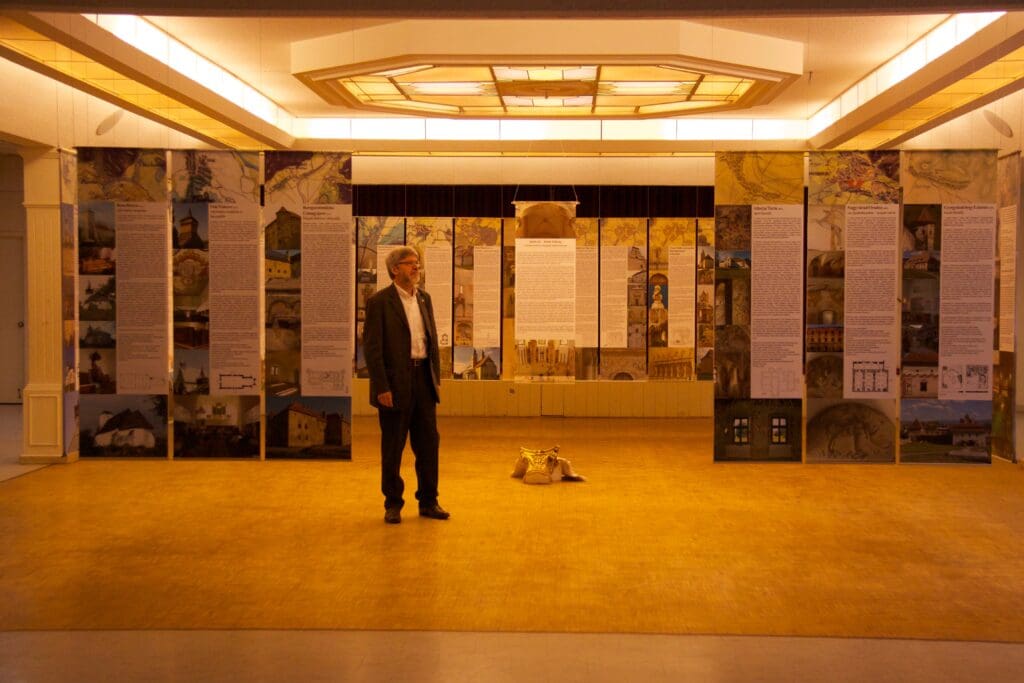
As someone in the documentary says, we have to go back to the roots and rebuild the whole structure from there. For this, we need the right people. A person in a position recently said that paid professionals should be brought from Hungary to run the Hungarian cultural institutions in the diaspora. I do not agree. It makes no sense to bring someone for a lot of money who has no local knowledge or contacts. If we cannot find competent people in the diaspora who are paid properly for their work, then it does not matter anymore. We ourselves have to ‘raise’ those who can run a Hungarian bookshop, club or house or radio.
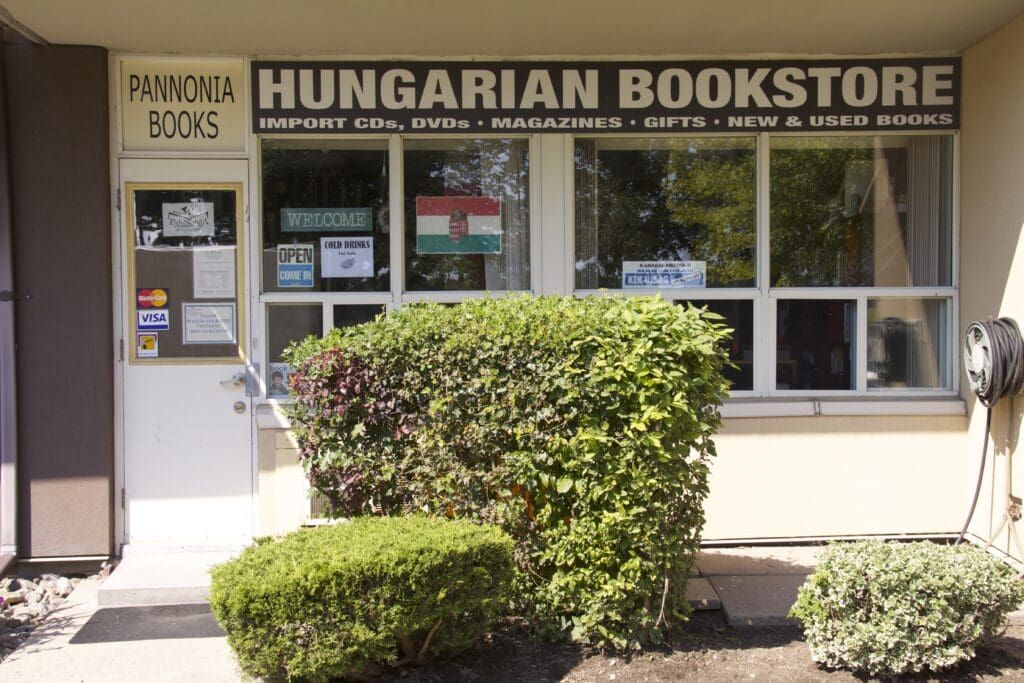
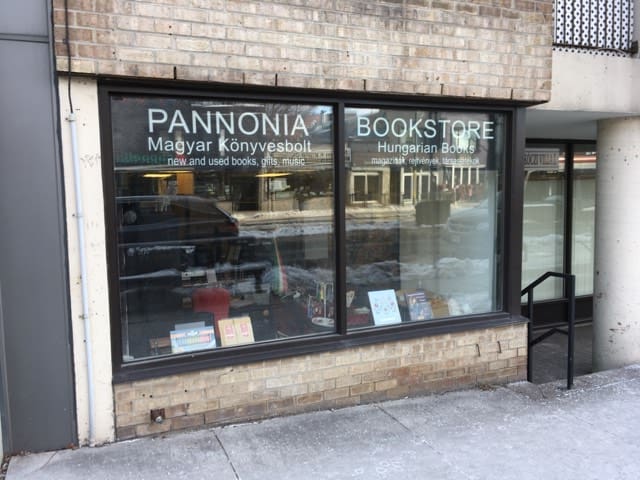
Every community, all civil and parochial institutions have been equally struggling with revival since the Covid pandemic. Why do you think people are still reluctant to attend social and cultural events?
At the last Hungarian Congress before the Covid pandemic, after my speech there was a small discussion where young people asked: why organize live programmes when everything is available on Youtube? Why organize live concerts with the Kaláka band for instance when you can watch them online? During the pandemic, many people got hooked on online broadcasting and stopped physically going anywhere. Lot of community leaders made the mistake of continuing streaming their programmes online. Even today in churches you can see pastors saying goodbye to those sitting in front of the screen and wishing them bon appétit for lunch. I do not think this is the right direction. My son recently told me that when their company’s Montreal office announced that employees would have to go back to the office at least for a few days a week, many people quit. He added that if the Toronto office had the same decision, he might leave the company, too. This was shocking to me.
So it is not just about the health-related effects of the pandemic (with Canada having very strict restrictions by global comparison), but also about changing cultural consumption patterns. You mentioned the balls. Obviously your problem is not that there are balls organized…
It has never been a problem of having something, it is a problem of not having alternatives. When we moved to Toronto and wanted something culturally different from what existed there at the time, we created what we needed and what we loved so much: places and events offering a higher culture. But with the pandemic all that disappeared, and only the ballroom dancing came back. If you look at the diaspora in the West, Hungarian scouting, folk dancing and weekend schools are important, even dominant. But where are the parents? Most of them, unfortunately, do not attend any cultural events, they do not help maintain these events, clubs and houses, and therefore, as soon as their children will leave school and stop scouting and folk dancing, their Hungarian identity will also end.
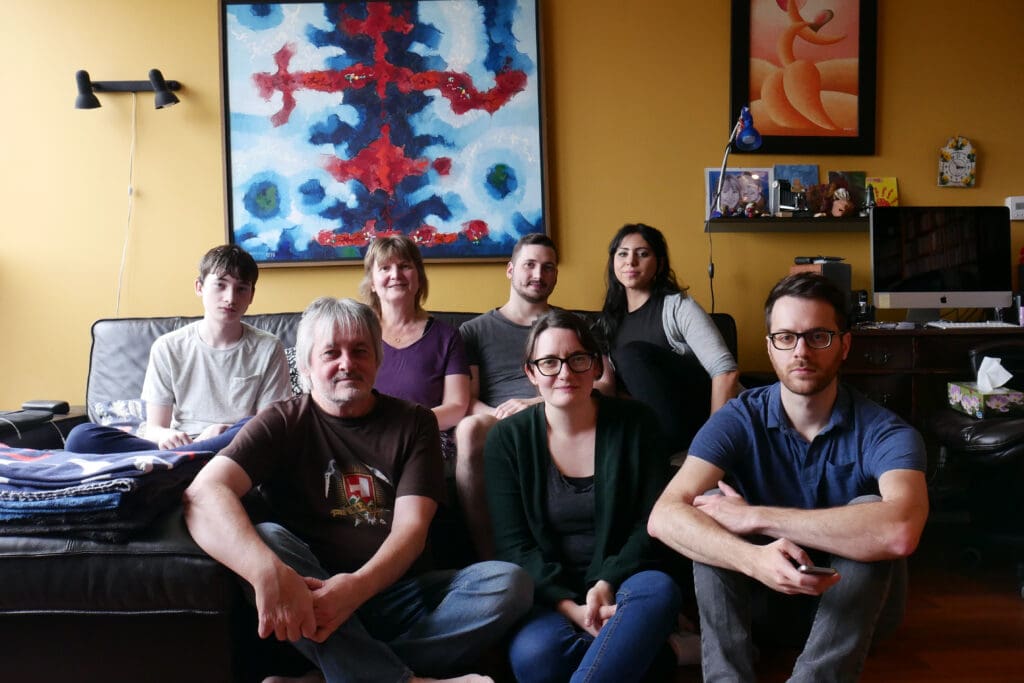
Hungarian teachers could also take their classes to cultural events…
Indeed! Once I begged a secondary school teacher, a good friend of mine, to bring the children to the performance of the storyteller András Berecz, as it would be a great experience for them. He came with all kinds of excuses. These are the phenomena that send us going down the drain day by day… I am sorry but I cannot see the future in pink: the Hungarian quarter has disappeared in Toronto, the Hungarian restaurants have closed: we used to have more than twenty restaurants, now we have only one or two. There are signs of decline everywhere, although the Hungarian diaspora is not necessarily declining in pure numbers. There may be even more people who identify themselves as Hungarian in Toronto or Canada these days than twenty or thirty years ago, but those who are actually nurturing and maintaining our culture and our communities are fewer and fewer.
Jesuit Father Tamás Forrai, who also lives and serves in Toronto, told me the same in a recent interview.
Father Forrai warned us the other day by saying: ‘I’m just a tourist here’. His time will soon be up and they will send someone else to replace him. Just by the time we got to know Father Szabolcs Sajgó better, he went back to Hungary and continued his fantastic work at home. Father Tamás has also done a lot of great things, like bringing the school back to the church, but he is still a ‘tourist’ who will soon be packing up and going home. That is why it is important: there is no need to bring professionals from home. Within the church, it is not realistic to expect and count on local replacements, i.e. priests or pastors born in the Hungarian diaspora, but with (Hungarian) culture it is different: it is our own responsibility to preserve it. Before the pandemic, there were plenty of opportunities for state grants, and there are still today, but fewer. I have no right to say whether or not something or someone is eligible to receive a grant, but I do have an opinion on the matter: there are many Hungarian communities who are not using this money in the right way. Every penny should be spent literally on surviving spiritually and culturally.
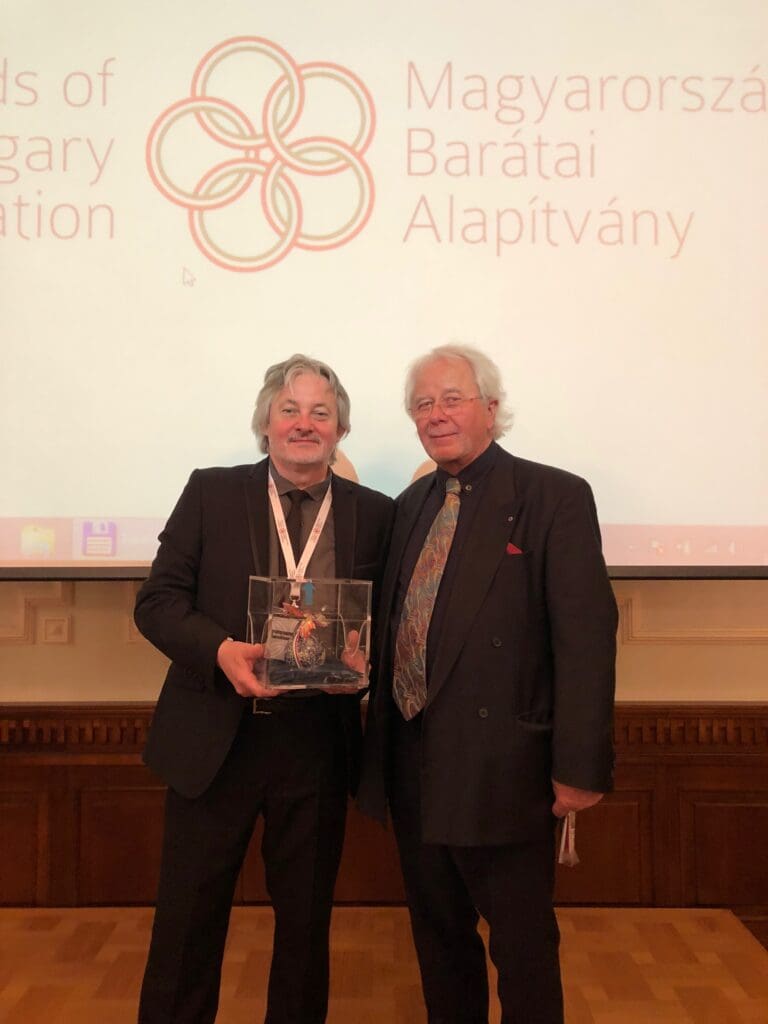
Speaking about the next generation, is it not feasible to continue your work within your family?
None of them are going to be Hungarian radio speakers or cultural community organizers; they do not have the drive for it. Nor do they have the background that I had in Győr, Hungary, where I was constantly building up cultural contacts, which I have maintained also after my immigration to Canada. But it is not really my children’s age group we are missing here, but middle-aged parents somewhat younger than me.
Indeed, but can anyone have as many connections as you do? Can your very rich experience and broad network of connections be passed on to somebody?
I think so, if there was a demand for it, i.e. if I could see that there was someone who wanted to continue and would put their own effort in it. For example, if the Hungarian institutions said: although you are not our cultural director, we need your advice. Just like the people who recently asked me to help them to have a better programme and I suggested they work with Gyöngyi Écsi. I did not manage her or the relationship, I simply facilitated the connection and thus she was their guest, not mine, and now they have a relationship with her that they can build on. But institutions do not have this attitude, they make it more of a vanity issue and decide by themselves who/what to invite. It is sad because I would be happy to pass on my knowledge and to help with contacts though. Nevertheless, I could still make the Paraméter Club work, like in the good old days, if there was a demand for it; but it is time for someone to take it over. I am not getting any younger and we are very fond of Hungary, we would like to spend more time there. But that does not mean that there would not be a new impetus. We had (renowned Hungarian historian specializing in the research of the Communist era in Hungary) Zsuzsanna Borvendég join us recently and lots of people came together and I have some other ideas, for example (popular rock musician, composer, singer of the Hungarian band Magna Cum Laude) Misi Mező, who could also be a ‘big headliner’ to help relaunch the club. But, overall, I think it will never be the same…
What about the Independent Hungarian Radio? Does it have a future?
It has become an internet-based radio; so I can broadcast from anywhere, even from my kitchen in Győr, I do not need a studio anymore. In our home studio in Toronto we have a small mixing desk and two microphone stands, so we can have three people talking together, but by now such small mixing desks are available that I can easily carry in a bag. The radio in fact is becoming more and more popular. To my utter amazement, I have had people stop me here, in Cleveland telling me that they are listening to it.
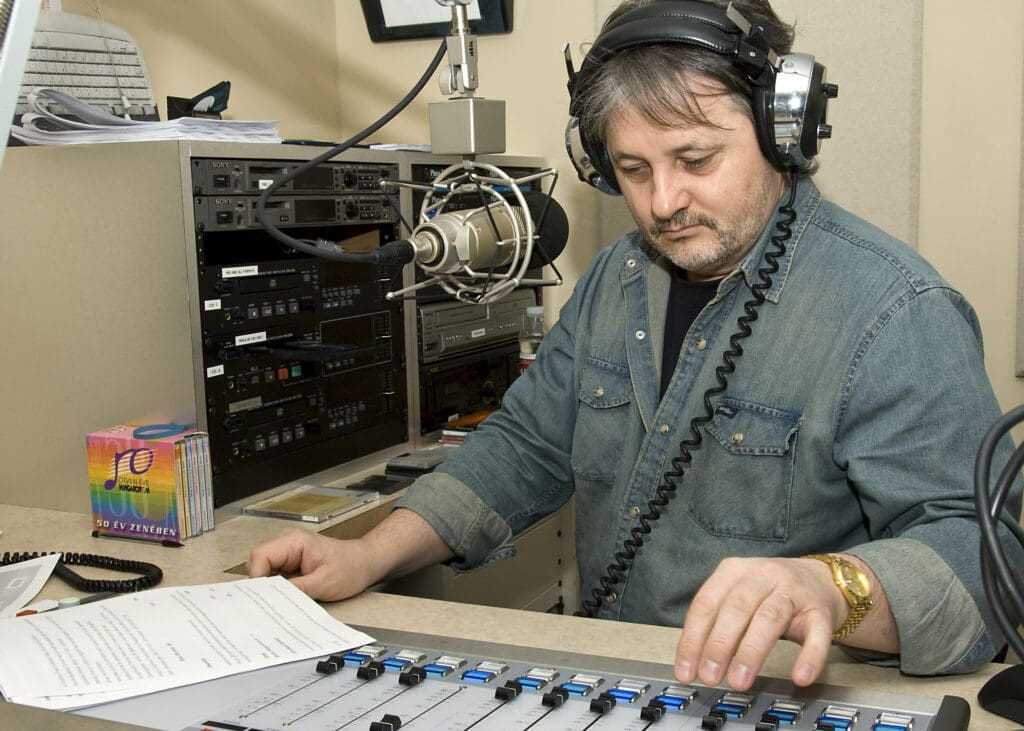
There are not many Hungarian radios left in the diaspora by now – Bocskai in Cleveland, ours in Toronto, Magyar Híd in Vancouver, ZeneBuona in Calgary, Mozaik Sydney in Australia – and they are all very different. People who listen to my programme are interested in how Hungarians live, how they think, and what they do all over the world. An actress from Szeklerland said: ‘Zsolt, you are building bridges between us, between Szeklerland and Hungary’. I am talking to a Hungarian from Győr or from Transylvania or from North America in the same way; they feel that bridges are being built between them.
You were the cultural director of the Hungarian House in Toronto some time ago, is that correct?
Yes, I was the cultural director for six years of the brown-brick old Hungarian House with the Budapest sign on it. It was very difficult to maintain that building, very uneconomical, but it was full of fantasy: there was a great hall with the Hungarian Saint Crown hanging in the middle, there was a restaurant section, the Matthias Cellar, where we also had Renaissance themed dinners, with my friend, the singer (énekmondó?) Zoltán Kátai – who has since passed away – of which I am particularly proud. In spite of the two hundred high quality and not unprofitable cultural programmes, despite the fact that we always had a vision, there were a lot of financial problems, since the monthly fixed cost of the house was twenty thousand dollars. Eventually we sold it and a few years later we bought the new house, but I never went back to become cultural director.
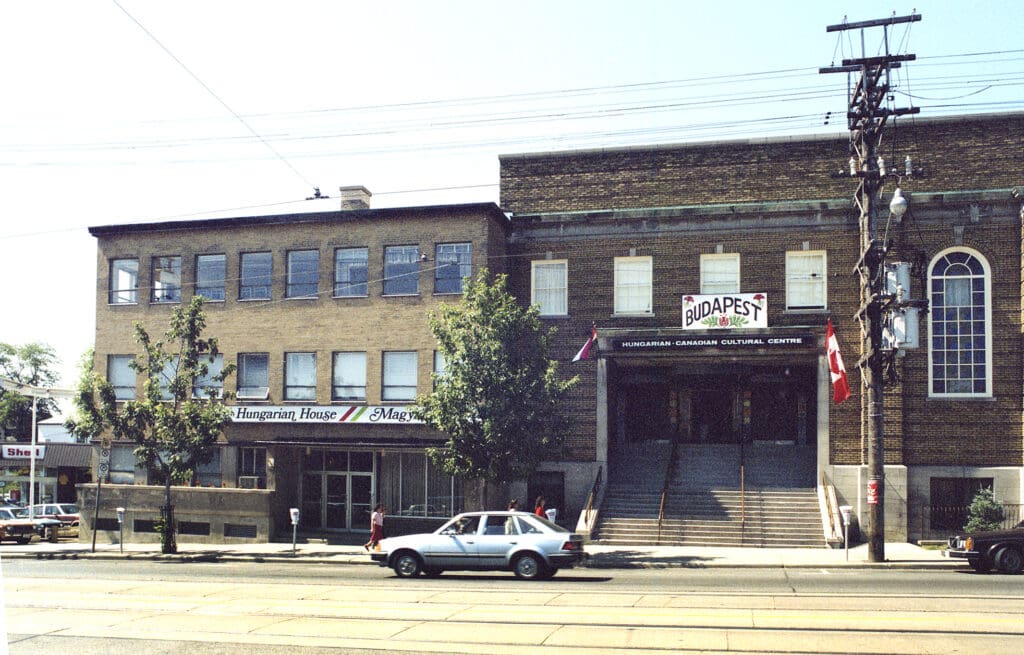
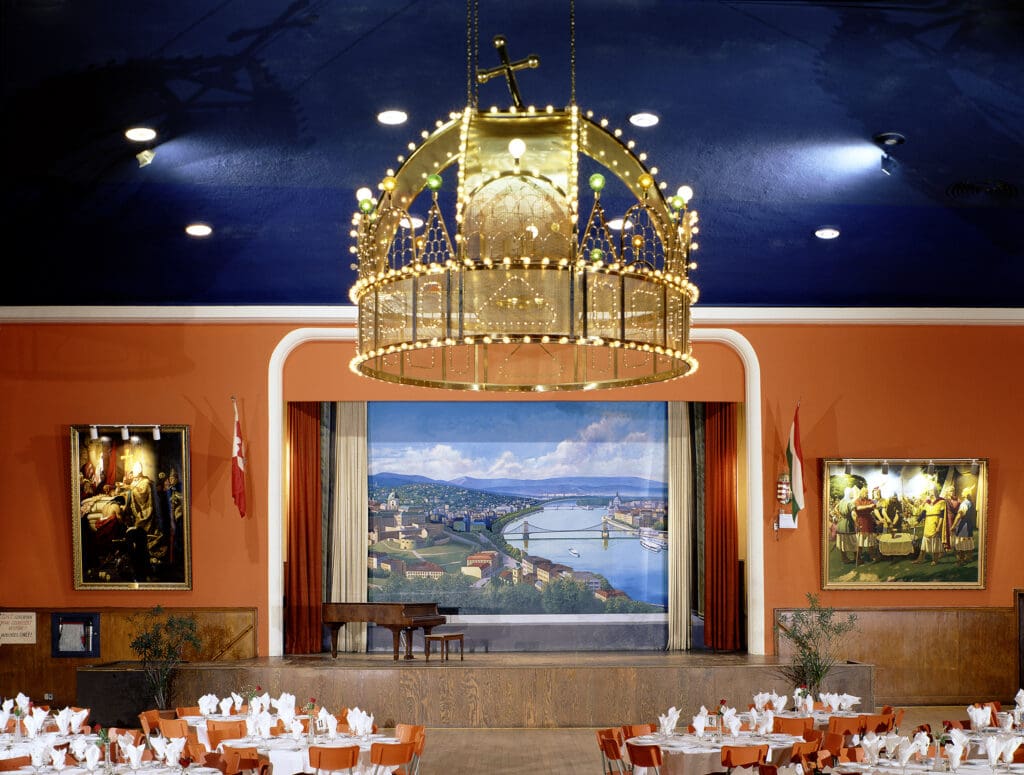
You mentioned that you not only brought high culture from Hungary, but you also took it there, too. How?
I was the director of external relations for the Mediawave Festival for twenty years. From there I could easily manage things abroad, and in doing so I also got involved with the events organized back in Hungary. When I took a Canadian singer there, and the Canadian ambassador was present, it occurred to her that it would be good to have a Canadian movie week. I was happy to organize it, I got the movies together, I even asked George Lantos for some, and the result was a fantastic movie week of 10-15 Canadian movies in Hungarian cinemas, and I was invited to the opening ceremony. It was the first programme of its kind, thanks also to the fact that Eszter Rodé, the cultural attaché at the Hungarian Embassy in Canada was a human link between the Embassy and Hungarian culture; an outstanding person who sent Canadian diplomats to the Canadian programmes we organized and also to Mediawave. That is when we built all those relationships that grew into the movie week that I am very proud of. Later I also introduced Canadian artists, musicians and filmmakers to Hungary.
Pannonia is the only Hungarian book distributor in North America. Who are your major customers?
The Cleveland Scout troop orders gift books from time to time, but a lot of the boxes you saw in the movie go to libraries in Washington D.C., Cleveland, Toronto. They do not buy directly from Hungary because it is too complicated for both parties. Libraries like to place the order and get the books. But there is a lot of administrative work to be done in the background. My wife gets angry sometimes, because the libraries request us to produce a list of a few hundred books, translate the titles, etc., which she spends an awful lot of time on, but then they say half of those on the list should not be part of the order. A regular distributor would not do this. Libraries approach us, we put the order together, they give us a card number and we sort everything out. It would be difficult to do this from Hungary, and packages can get lost on the way. Sometimes Hungarian schools in North America also place orders with us, but less and less often, and sometimes teachers do not even use the gift vouchers received from the heads of their institutions… We often wonder whether Hungarians go to the libraries, because if no one borrows a certain type of book, the available funding will be reallocated to books in other languages. We are terrified of that, but for the time being it works. But once the libraries (also) stop, it will be a very serious blow for us…
Finally, you said that in the future you would like to spend more time in Hungary. Why and how?
We bought an apartment in Győr. It is small but beautiful and at a very good location, not in the downtown area, but still within the town borders, close to the Danube. We left a dark, smelly town at the end of the ‘80s and now we are going back to a magnificent, architecturally and culturally valuable place, where it is very nice to live.
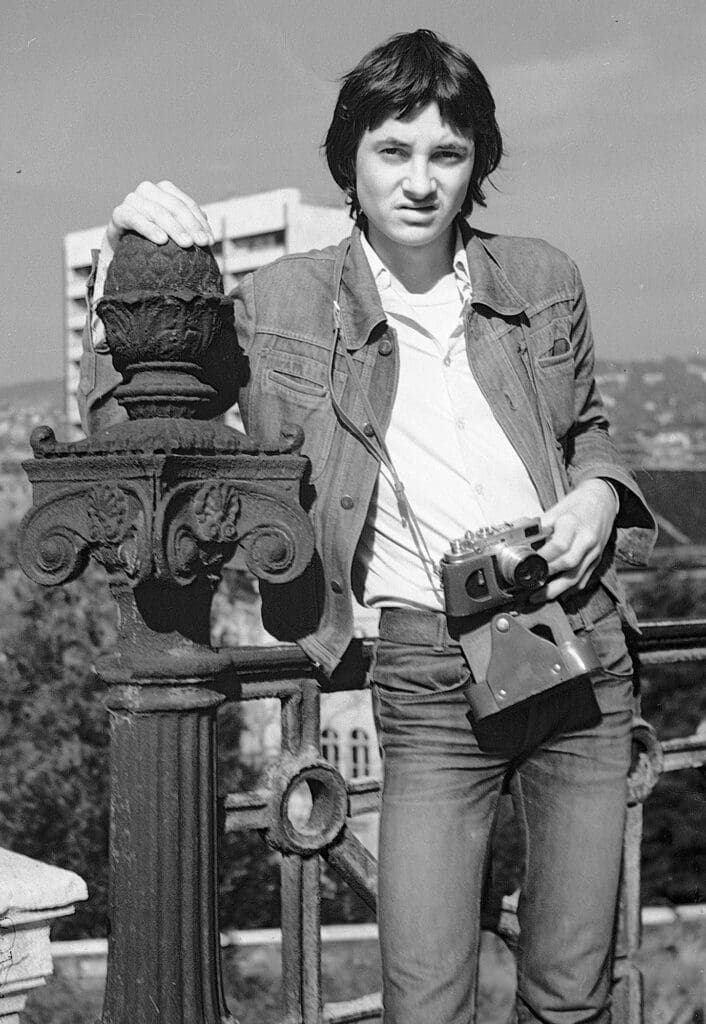
If we did not have children, we would already be living there; but we did not want to put them in a difficult situation. The grown-ups would not come anyway, and we would not want to take the 17-year-old ‘little one’ away from his siblings. If they decide to go, they will go on their own. Which is a real possibility, because they really like it there. We have taken them not only to Hungary, but also to Szeklerland, Délvidék and Felvidék, to festivals, where they were sometimes bored, but they got the atmosphere. They also say that Canada does not have the quality of culture that Hungary has. My son, for example, was very much fond of the professionality and creativity of the House of Terror. Of course, there are museums here, too, but you would not find a Hungarian National Museum in a country that is a hundred and fifty years old.

